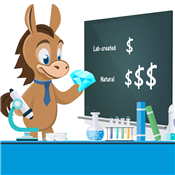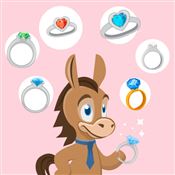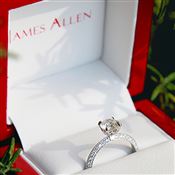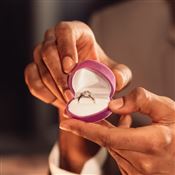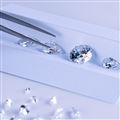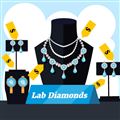Best Places to Buy Lab Created Diamonds
Here are the best places to buy high-quality lab diamonds. See how popular diamond retailers like James Allen, Brilliant Earth, and more compare.
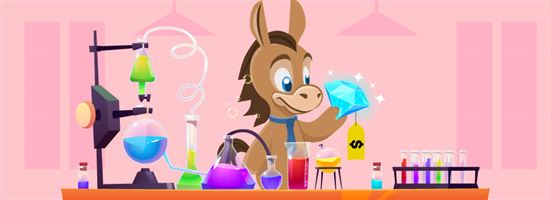 |
- James Allen: Best Overall for Value and Selection
- Clean Origin: Best Lab Diamond Pricing
- Ritani: For Free In-Store Preview
- Brilliant Earth: Best for the Socially-Conscious Buyer
- Blue Nile: Best for Lab Diamond Jewelry
Engagement ring shopping doesn't have to break the bank. In fact, lab diamond prices have never been better.
Lab diamonds are now up to 75% cheaper than natural diamonds. Plus, they're ethical, so you can feel better about buying a lab-created diamond than a mined one.
Are Lab Created Diamonds Worth Buying?
If you want to buy a lab created diamond for ethical reasons or to save money, then they're absolutely worth buying. Otherwise, it all comes down to personal preference and resale value (if that's important to you).
The DIAMOND rule helps you remember the key aspects to consider when buying lab-created diamonds:
- Details: Pay attention to the 4 Cs (cut, color, clarity, carat).
- Inspection: Ensure the diamond is certified and inspected by a reputable lab.
- Authenticity: Verify the authenticity and origin of the diamond.
- Money savings: Look for cost savings compared to natural diamonds.
- Options: Explore various options and settings.
- No conflicts: Ensure the diamond is ethically sourced with no conflict concerns.
- Durability: Confirm the durability and quality of the diamond.
Here are a few reasons why you might not want a lab created diamond:
- Some people just want the real thing. They don't want a man-made one passed off as real. This mostly stems from not fully understanding what lab diamonds are.
- There's less resale value. The resale value of diamonds is weak in general. But synthetic diamonds are even worse because they can be made in large quantities.
- Diamonds are usually considered more special. Though a lot of this is just clever marketing. Still, some think a lab diamond doesn't have the same prestige.
If you want a wide range of options beyond lab created diamonds, here are the best places to buy engagement rings.
If you're not deterred, then keep reading for our top picks to buy lab-created diamonds. Plus, learn how to shop for the perfect lab diamond of your dreams.
James Allen: Best Overall for Value and Selection
James Allen
Pros:
| Cons:
|
Our Review: ![]()
![]()
![]()
![]()
![]()
James Allen is one of the top online diamond retailers in terms of value, selection, and customer service. It revolutionized online diamond shopping with real 360-degree HD videos. Since then, other online retailers have followed suit.
Advantages of James Allen:
James Allen offers 105,000+ loose lab-created diamonds that you can set with any engagement ring.[1] That's in addition to their vast inventory of natural diamonds.
You can also find a selection of over 9,000 fancy colored lab diamonds, though the vast majority is yellow colored.
James Allen's customer service is excellent. If you need help, you can start a real-time diamond consultation. You'll screen share with an expert who can help you compare diamonds and review specs. No appointment needed.
Downsides:
James Allen may not offer the absolute lowest prices on lab diamonds (the next pick on our list takes that title).
James Allen is best for:
Those looking for the most options to custom design an engagement ring, including designer setting options.
Features:
- 360-HD videos; SuperZoom tool
- Lab diamonds come with a diamond certification from GIA, AGS, or IGI
- Free 30-day returns
- Free shipping both ways
- Free resizing within 1 year of purchase
- Lifetime warranty for cleaning, maintenance, repairs
- 24/7 customer service via phone or live chat
Clean Origin: Best Lab Diamond Pricing
Founded in 2017, Clean Origin is a newer online diamond retailer. It specializes in 100% ethical and eco-friendly lab-created diamonds.
Advantages of Clean Origin:
Among the retailers we looked into, Clean Origin offers the best pricing. For example, for a 1.5 carat round lab diamond (VS1, H, Ideal Cut), Clean Origin's pricing is $2,400. On both James Allen and Brilliant Earth, a similar diamond is priced at $3,200.
Clean Origin prides itself on quality. All lab diamonds in their inventory are hand-picked. All stones are confirmed to be flawless to the naked eye.
Clean Origin currently has over 101,000 loose diamonds. It also offers a small collection of pink, blue, and yellow lab diamonds.
In addition, you can find preset earrings, bracelets, pendants, and rings made with lab diamonds.
Downsides:
Setting prices tend to be higher compared to James Allen. It also has a more limited number of settings (currently a little over 300). But with the great diamond pricing, you should still be able to save overall.
Clean Origin is best for:
Those looking for the best pricing on lab diamonds. Also, those who want to support a company that only sells lab diamonds.
Features:
- 360-degree videos of all diamonds
- Diamonds certified by IGI and GCAL
- Free 45-minute virtual appointments
- 60-day free returns - the most generous on the market[2]
- Free resizing within 60 days of the original shipment date
- Free shipping two ways
- Lifetime manufacturing warranty (for original and unaltered products)
Ritani: For Free In-Store Preview
In addition to natural diamonds, Ritani offers 630,000+ lab diamonds as well. It sets itself apart from other online retailers with customer-oriented practices.
Advantages of Ritani:
In general, we find Ritani's diamond pricing to be on the lower end compared to competitors. Searching for the same 1.5 carat round lab diamond, Ritani's price is around $2,700, which is cheaper than James Allen.
A really unique feature is the free in-store preview. You can have your finalized engagement ring sent to a partner jeweler near you so you can see it before buying. If you don't like it, there's no pressure to take it home. The hold on your credit card will be released - you pay nothing.
Ritani also aims to provide full pricing transparency. You'll see a full cost breakdown, including cost of the diamond, fulfillment costs, and Ritani's markup. This way, you understand exactly what you're paying for.
Downsides:
Ritani's settings are generally more expensive than other retailers. It only has a handful of settings under $1,000. Plus, it only has 185 setting styles, so you'll have to see if you can find something you love within your budget.
Ritani is best for:
Those who are unsure about making such a big purchase blind and would like to see the ring in person first.
Features:
- 360-degree videos of all diamonds
- Lab diamonds graded by GIA, IGI, GCAL, Diamond Foundry, GSI, or HRD
- Free virtual consultation by appointment
- Free 30-day returns - Ritani can even schedule a FedEx pickup at your home or office
- Free resizing within 1 year
- Free shipping both ways
- Lifetime manufacturing warranty
- 6 days a week customer service via phone or live chat
Brilliant Earth: Best for the Socially Conscious
Brilliant Earth
Pros:
| Cons:
|
Our Review: ![]()
![]()
![]()
![]()
![]()
Brilliant Earth is one of the leading jewelers for ethically sourced diamonds. They have a "beyond conflict-free" philosophy that appeals to the socially conscious shopper.
Advantages of Brilliant Earth:
Brilliant Earth has over 360,000 loose lab-created diamonds. It also has a nice selection of colored lab diamonds, in mostly pink and blue hues.
Brilliant Earth doesn't just stop at ethical stones. They also use recycled metal to make their rings, thus reducing the need to mine new metals. Their ring boxes are made from responsibly sourced natural wood.
The company also has a strong social mission to give back to mining communities, as well as contributing to rainforest conversation efforts.
Downsides:
Just like James Allen, you won't find the cheapest prices on lab diamonds, but it's still competitive.
Brilliant Earth is best for:
Those who want their entire ring to be as ethical as possible. And those who want to do good with their purchase.
Features:
- 360-degree videos
- Lab diamonds certified by GIA, IGI, GCAL, or HRD
- Free video consultation (by appointment)
- Free 30-day returns
- Free resizing within 60 days
- Free shipping both ways
- Lifetime manufacturing warranty
- 24/7 customer service via phone or live chat
Blue Nile: For Lab Diamond Jewelry
Blue Nile
Pros:
| Cons:
|
Our Review: ![]()
![]()
![]()
![]()
![]()
Blue Nile offers collections of earrings, necklaces, bracelets, and rings made from lab-grown diamonds.
Advantages of Blue Nile:
The jewelry pieces offer a great balance of beauty, value and quality. All lab diamonds have a guaranteed minimum of VS clarity and Very Good cut grade.
Blue Nile has a lowest price guarantee. If you see another, practically identical, GIA-certified loose diamond at a lower price, Blue Nile will match the cost. But that has to be done before you make your purchase. The 2 stones need to match the 4C's (cut, color, clarity, and carat), and even other criteria like fluorescence, table and depth percentage, symmetry, etc.[3]
Downsides:
Blue Nile also doesn't offer a lot of options for rose gold and platinum rings. So if you're looking for any of those metals, you are very short on choices.
Blue Nile is best for:
Those looking to buy fine jewelry made with lab diamonds, for any occasion.
Features:
- Free 30-day returns
- Free shipping both ways
- Lifetime manufacturing warranty
- 24/7 customer service via phone or live chat
Misunderstandings About Lab Diamonds
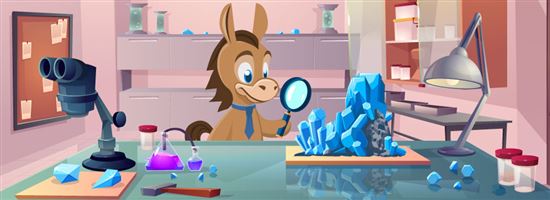 |
Some people are unsure about buying a "man-made" or "synthetic" diamond - and that's fair! Most of this is due to confusion about what a lab diamond is.
Lab diamonds have the exact same carbon structure as diamonds created in the earth. It's just that the creation process is replicated and sped up in a controlled lab environment.
Therefore, lab diamonds are not fake diamonds. They are real diamonds with the same physical and chemical properties. They are just as durable and sparkly as natural diamonds.
Here's a table comparing the differences (and similarities) of lab diamonds and natural diamonds.
| Natural Mined Diamonds | Lab-Created Diamonds | |
|---|---|---|
| Creation | Formed over billions of years deep under the earth's crust | Mass produced in labs over just weeks |
| Properties | Made of carbon atoms | Made of carbon atoms |
| Quality | Comes in a range of sizes and color and clarity grades | Comes in a range of sizes and color and clarity grades, but lab technology can produce higher-quality diamonds |
| Pricing | More expensive; $5,000 - $6,000 for a good value 1-carat diamond | 50%-60% (or even more) less than price of natural diamonds |
| Hardness | 10 on the Mohs scale | 10 on the Mohs scale |
| Fancy Color | Naturally colored diamonds are rare and expensive | Lab technology can make colored diamonds for much cheaper |
| Certification | Graded based on 4Cs | Graded based on 4Cs |
In 2018, the Federal Trade Commission (FTC) expanded its definition of "diamond" to help prevent deception in jewelry marketing. FTC removed the word "natural" from its definition of a diamond. Both from mines and labs are diamonds, the only difference is their origin.[4]
With this misunderstanding cleared up, let's go over the benefits of lab diamonds.
Benefits of Lab Grown Diamonds
More than 50% cheaper
Lab diamonds can be mass-produced in unlimited quantities in a lab, so they can be offered at much lower prices. For example, a good value 1 carat mined diamond costs around $5,000, while you can get the same quality lab diamond for around $1,600.
Same brilliance and sparkle
Lab diamonds have the same carbon structures as earth-mined diamonds, so they sparkle just as much as real diamonds. They will not get cloudy and lose brilliance over time.
Socially and eco-conscious
Synthetic diamonds are made in safe lab environments with fair wages. You don't need to worry about your diamond coming from a mine with unethical working conditions. There's also no destructive mining involved with making lab diamonds.
A variety of colors
Lab technology can create diamonds in the full range of colors. This is a great way to get a colored diamond at just a fraction of the price.
Clean Origin and Brilliant Earth both offer loose lab diamonds in stunning pinks and blues, which are usually the rarest and most expensive diamond colors.
How to Shop for a Lab Diamond
Here are some tips on shopping for a lab diamond engagement ring:
- Set a budget
Come up with a reasonable budget that will not put you into debt. The good news is that you can buy a much larger lab diamond with the same budget. If you have a $3,000 budget, you can afford a 1.5 carat lab diamond (as opposed to just a 0.7 carat natural diamond). - Find the right retailer
It's important to find a reputable, trustworthy retailer. Look for a vendor with certified lab diamonds, free return policy, and free resizing and warranty. All of the retailers on our list are highly recommended. - Decide on the ring style
The engagement ring should match her personality and fashion sense. The ring design includes:- Diamond shape: Would she prefer a traditional round, or something more bold, like an oval or pear diamond?
- Ring style: From simple solitaire to flashy halo to vintage-inspired rings, there are tons of styles for different tastes.
- Metal color: Choose between classy silver-toned metals (platinum or white gold), warm yellow gold, or romantic rose gold.
- Diamond shape: Would she prefer a traditional round, or something more bold, like an oval or pear diamond?
- Check the lab certification
The lab certification is how you can confirm the quality of the diamond. However, you usually won't find GIA-certified lab diamonds. IGI (International Gemological Institute) is probably the most reliable lab certification for lab diamonds.Brilliant Earth does offer a small selection of lab diamonds certified by GIA if you are looking for the highest grading standards. The pricing for GIA-certified lab diamonds is significantly more. - Choose an excellent cut
Just like with natural diamonds, the cut of the diamond is what determines how sparkly it is. Choose an Ideal (or Excellent) cut for maximum brilliance. - Color and clarity
For natural diamonds, we always recommend H color and VS2 clarity as the sweet spot for best value. This is still true for lab diamonds, but the difference in pricing is not as significant between grades. So you can get a slightly higher quality diamond if you wish.
Lab-Created Diamond Common Questions
Do lab diamonds look different from natural diamonds?
Since lab diamonds have the same properties as earth-mined diamonds, there is no visual difference between the two. Expert gemologists even have a hard time telling them apart.
Are lab diamonds fake?
Lab diamonds are very much real diamonds. This is different from diamond stimulants (such as cubic zirconia and moissanite). Even though those look like diamonds, they don't have the same properties.
How much do lab diamonds cost?
In general, here is what you can expect to pay for a good value lab diamond:
- 0.5 carat: $500 - $700
- 1 carat: $1,500 - $1,800
- 1.5 carat: $2,600 - $3,200
- 2 carat: $4,500 - $5,500
- 3 carat: $9,000 - $11,000
Note that these prices are from online retailers. Physical retailers usually have higher pricing due to the larger overhead costs.
Do lab diamonds last?
A lab diamond will last just as long as a real diamond. They have the same hardness - 10 on the Mohs hardness scale, which is the hardest gemstone available. You don't have to worry about your lab diamond getting scratched and cloudy.
Do lab diamonds hold value?
This is one downside to lab diamonds. Since they are mass-produced in labs, the resale value is weak. There is no historical or rareness value. In general, though, diamonds do not have much resale value, but lab diamonds are even worse.
Some diamond retailers have a buyback program for real diamonds, but it is not applicable to lab diamonds. You shouldn't see lab diamonds as an investment piece.
How are lab diamonds made?
Lab diamonds are grown from a carbon "seed." The seed is placed into a chamber where the extreme heat, pressure, and gases make the diamond grow. The two methods are CVD (Chemical Vapor Deposition) and HPHT (High Pressure High Temperature).
The process takes between 6 and 10 weeks. Once full crystallization takes place, the diamonds are cut and polished. They then go through the same grading process as regular diamonds.
Bottom Line
Lab diamonds are a great choice for an engagement ring if you're looking for an affordable and ethical alternative to diamonds.
As long as you shop at a trustworthy retailer with certified lab diamonds (like the ones on our list), you don't need to worry about getting ripped off.
References
- ^ James Allen. Lab Created Diamonds, Retrieved 06/12/2025
- ^ Clean Origin. Return Policy, Retrieved 06/12/2025
- ^ Blue Nile. Terms & Conditions For The Blue Nile Diamond Price Guarantee, Retrieved 06/12/2025
- ^ Federal Trade Commission. FTC Approves Final Revisions to Jewelry Guides, Retrieved 06/12/2025
Anna G is a research director at CreditDonkey, a diamond jeweler comparison and reviews website. Write to Anna G at feedback@creditdonkey.com. Follow us on Twitter and Facebook for our latest posts.
Note: This website is made possible through financial relationships with some of the products and services mentioned on this site. We may receive compensation if you shop through links in our content. You do not have to use our links, but you help support CreditDonkey if you do.
|
|
| ||||||
|
|
|




